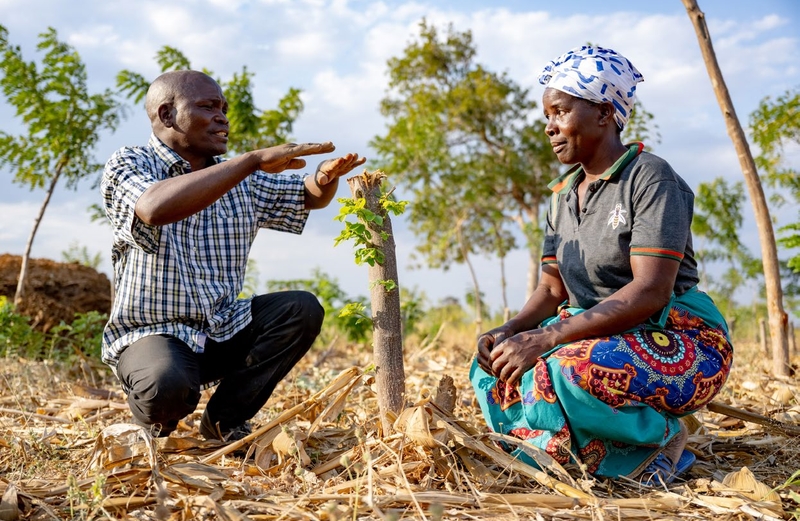Transforming Agrifood Systems: A Crucial Step in Combating Climate Change
The undeniable link between agriculture and climate change has taken center stage in global discussions. Agriculture is both a victim of climate change and a significant contributor to greenhouse gas emissions. To ensure food security for billions while reducing environmental harm, agrifood systems must transition to sustainable, climate-resilient models.
COP 28: A Milestone for Sustainable Agriculture
COP 28, held in Dubai, UAE, highlighted the critical role of agriculture in addressing climate challenges. Key commitments included integrating agriculture into national climate policies, promoting food security, and accelerating innovation. Yet, Africa remains disproportionately vulnerable. The World Meteorological Organization reports that the continent has warmed faster than the global average per decade between 1991 and 2023. With nearly 40% of Africa’s land used for agriculture, the stakes are high.
Extreme weather events and shifting climate patterns could drastically reduce crop yields by 2100, with staples like rice and wheat most affected. Changing agricultural zones, soil degradation, and erratic rainfall will further disrupt food security, impacting both crop quality and yields.
Sustainable Practices: A Path to Resilience
“Sustainable farming practices must be central to national climate strategies,” says Johnathan Sutton, Group Chief Sustainability Officer at Westfalia Fruit, a global leader in avocados and fresh produce. “While combating climate change is crucial, the role of agrifood systems cannot be overlooked.”
Sustainable practices such as enhancing soil health and minimizing chemical pesticide use not only improve productivity but also prevent land conversion for agriculture. For example, Westfalia’s entomology project in Chile rears insects to naturally control agricultural pests like Mealybugs and White Scale, reducing the need for pesticides and promoting tree health.
Preventing Deforestation and Conserving Resources
Agricultural expansion remains a leading cause of deforestation, with an estimated 10 million hectares of forest lost annually. This exacerbates carbon emissions and ecosystem degradation. Initiatives like Westfalia’s *Farm with Nature* approach aim to address this. In Portugal’s Alcácer do Sal region, environmental surveys identified areas of an abandoned farm to be left untouched, preserving local biodiversity.
Water conservation is another critical focus. Westfalia is implementing upgraded irrigation systems and a water reduction plan to improve water use efficiency by 50% by 2030.
Empowering Communities for Lasting Change
Community empowerment is key to transforming agrifood systems. Supporting smallholder farmers with training, resources, and access to global accreditation standards enables them to adopt sustainable practices. Westfalia’s programs in Africa and South America have improved yields and livelihoods, helping farmers build resilience against climate impacts.
“Financing is essential for sustainable agrifood systems,” Sutton emphasizes. “Goals must be realistic and attainable. At its heart, farming is about communities, and our focus must remain on supporting them.”
The Way Forward
As discussions progress at COP 29, there is growing recognition of the interconnectedness of food systems, climate change, and global development goals. Stakeholders must prioritize actionable strategies supported by adequate financing to drive transformation.
By adopting sustainable practices, preserving biodiversity, and empowering communities, the global agriculture sector can play a pivotal role in fighting climate change. Collaborative efforts from governments, corporations, and civil society are essential to secure a future where agriculture feeds the planet and protects it for generations to come.


